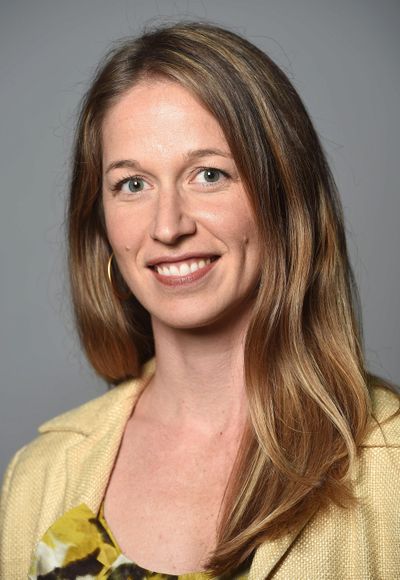Childhood trauma expert brings research to Gonzaga

Nicki Bush took her first psychology class at Gonzaga University in 1995.
Health psychology was an emerging field then, but she remembered learning how traumatic and stressful events early in life “could really make a difference in a child’s trajectory.”
Her undergraduate education spurred an interest in health inequities, leading her to complete a Ph.D. and two postdoctoral fellowships focused on how early social experiences, including childhood trauma, impact physical well-being.
Now a professor of psychiatry and pediatrics at the University of California at San Francisco, Bush will return to her alma mater Wednesday for a lecture about childhood adversity and reversing its negative outcomes.
Her talk, called “How early life stress gets under the skin and what we can do about it,” will be held at 7:30 p.m. in the Hemmingson Center Ballroom. It’s free and open to the public.
“I couldn’t be more excited because I love the things I learned and the people that really molded me at Gonzaga,” Bush said.
Bush is the first Gonzaga alumna to be named the Distinguished Alumni Researcher, a new position established by the university’s Office of Undergraduate Research and Creative Inquiry.
The office’s director, Jeff Watson, said the goal is to raise awareness of the research Gonzaga students are doing in collaboration with professors. He plans to bring in another alumni lecturer each year to showcase research they’re doing now and how Gonzaga research paved the way for them to get there.
“We have a strong culture of undergraduate research at Gonzaga already but people don’t always know a lot about it, even those of us on campus,” he said.
Bush’s work focuses on the impacts early childhood stress and trauma have on physical health. There’s been a growing awareness of the impact of those experiences on mental health recently, she said, but less on how they impact the body.
“There’s been a big awakening in the last decade that mental and physical health are not separate entities,” she said. That holds true with childhood stress, she said.
Her hope is that demonstrating that childhood experiences impact a variety of systems in the body will get more people interested in discussing children with trauma.
“If you can demonstrate it in a biomarker, that’s of interest to people,” she said. Showing links between trauma and weight, immune system function and other physical markers gets people from a variety of medical disciplines to come to the table.
Bush said her interest in the field started at Gonzaga, where she became interested in research showing how physical health is often worse in poor communities. She remembered looking at research showing that people who were stressed were more likely to catch the common cold, suggesting a link between mental health and immune system function.
“All of these things kind of put together an interest in my head in understanding social disparities and physical health early in life,” she said.
While at Gonzaga, Bush’s undergraduate research advisor was Nancy Worsham, a professor of psychology. Under her direction, Bush went door-to-door collecting data for a social research project, listened to tapes and entered data for other professors.
“I had many research experiences at Gonzaga that really really shaped who I am today,” she said.
Her current work is in part focused on reversing some of the impacts of childhood stress. Working with another researcher, she’s looked at how levels of the stress hormone cortisol respond to treatment designed to help parents and children process trauma together.
Normally, when someone is stressed, the body releases cortisol. But in someone exposed to constant stress, that response gets blunted, and the body slowly releases less cortisol over time.
Bush’s data from the research, which is still in progress, suggests many parents and children see their cortisol levels increase back to more normal levels as they go through therapy to process their trauma. Their executive functioning and other symptoms also improve.
Her talk will focus on the biological symptoms of childhood stress and how Gonzaga shaped her current research. She’ll also talk about what can be done to limit kids’ exposure to early trauma.
“I’d rather not wait until kids are poor and traumatized,” she said. “I’m hoping my work will compel people to change that.”
This article has been updated to correct the year of Bush’s first psychology class and the title of her talk.